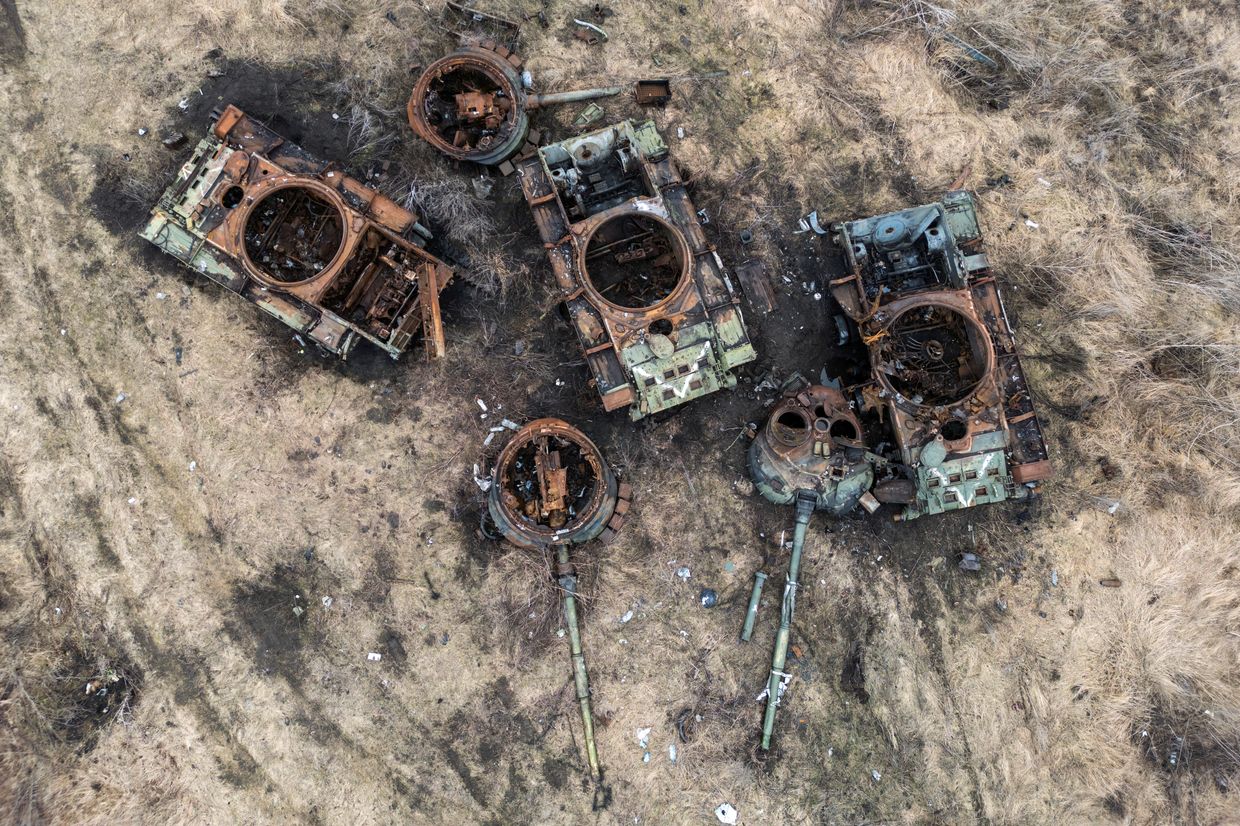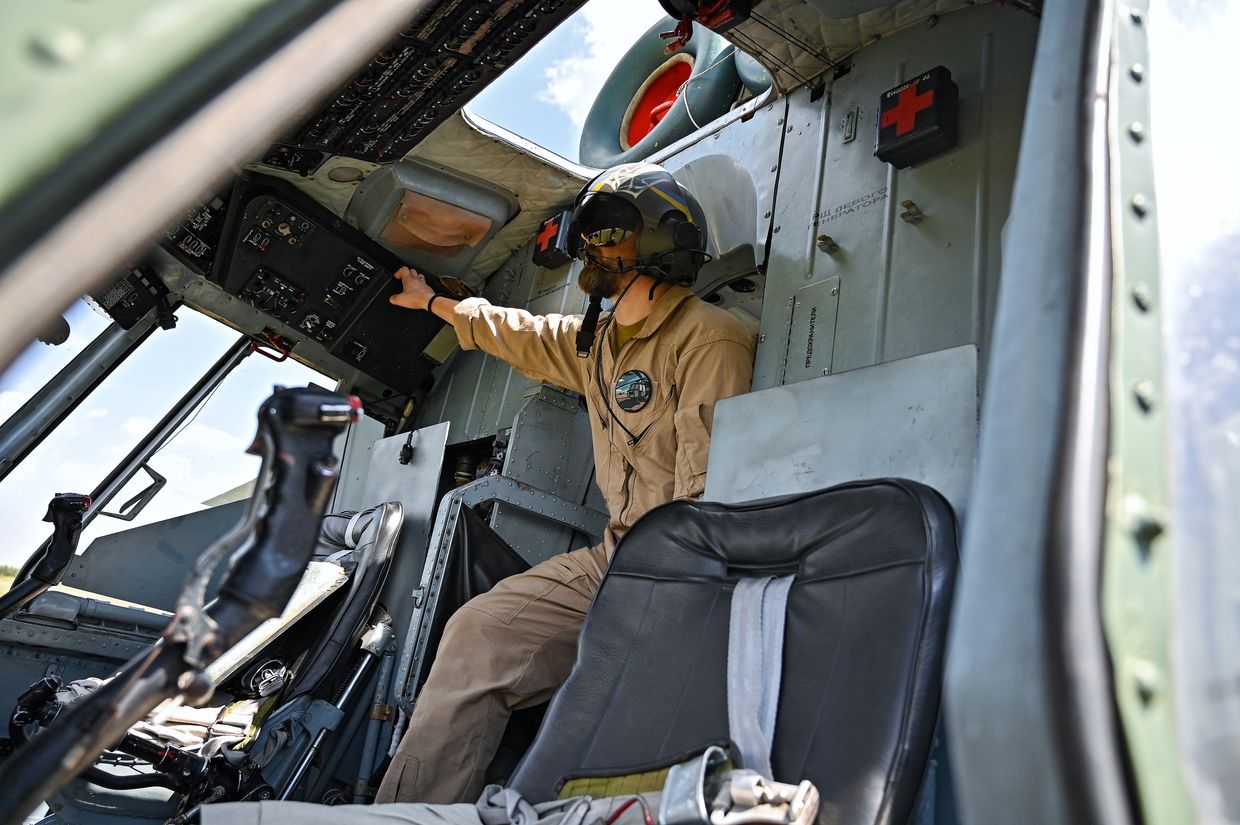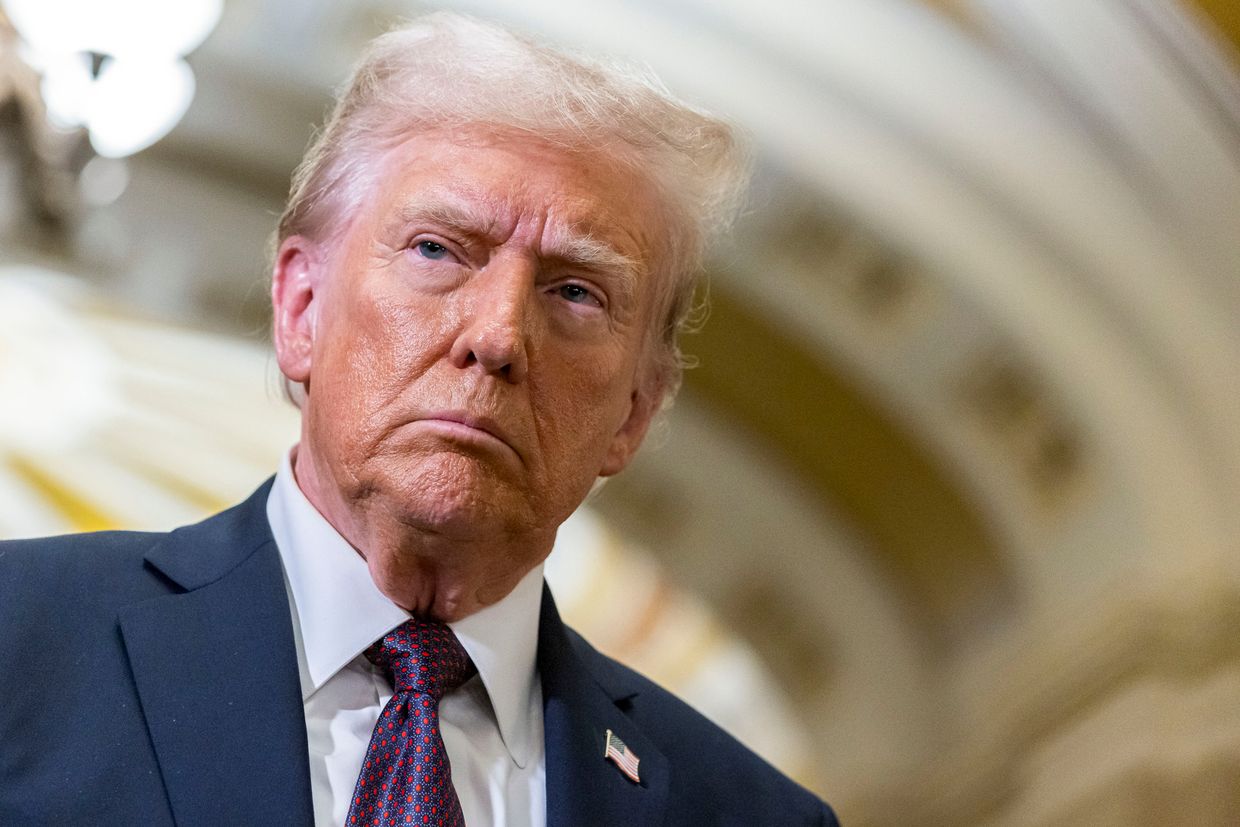Ukraine war latest: Russia, Iran sign strategic partnership deal; Ukraine strikes Russian S-400 radar equipment

Key developments on Jan. 17:
- Putin, Pezeshkian sign strategic Russia-Iran partnership agreement in Moscow
- Ukraine strikes Russian S-400 radar equipment in Belgorod Oblast, military claims
- Biden administration secretly funded Ukraine's drone industry, NYT reports
- US assured Putin no nuclear weapons in Ukraine, Biden says
- There's no evidence that Australian fighter was executed by Russia, prosecutors told media
Russian President Vladimir Putin and his Iranian counterpart Masoud Pezeshkian signed a strategic partnership agreement in Moscow on Jan. 17, Russian state news agency TASS reported.
Moscow and Tehran have long ties but their cooperation only intensified after the outbreak of Russia's full-scale war against Ukraine in 2022.
Iran has provided Russia with thousands of Shahed drones used in attacks against Ukrainian cities, as well as short-range ballistic missiles.
The document, signed during an official ceremony in the Kremlin, establishes Moscow and Tehran as strategic partners. The agreement covers various areas, including energy, finance, transportation, agriculture, culture, science, technology, and counterterrorism.
Russia and Iran have also agreed to strengthen cooperation in security and defense. According to the agreement, if one of the parties is subjected to aggression, the other will not provide any assistance to the aggressor.
Moscow and Tehran will also deepen partnerships between their special services, and will assist each other in the event of natural, and man-made disasters.
The strategic agreement between Russia and Iran is concluded for 20 years with automatic extension for subsequent 5-year periods.
With Iran's assistance, Russia has begun producing its own variants of Shahed drones called Geran-2.
Iran and Russia have also been at the forefront of confronting what they see as the Western-led global order, with namely Tehran sponsoring militant groups in the Middle East attacking the West's allies.
Last June, Putin signed a similar partnership agreement with North Korea, under which both parties agreed to military support each other in case of an armed attack.
Months after the deal was signed, North Korea dispatched up to 12,000 troops to help fend off a Ukrainian incursion in Kursk Oblast.
Ukraine strikes Russian S-400 radar equipment in Belgorod Oblast, military claims
Ukrainian forces struck radar equipment of an advanced S-400 air defense system in Russia's Belgorod Oblast, Ukraine's General Staff reported on Jan. 17.
According to the military, the positions of Russia's anti-aircraft missile division of the 568th regiment came under a "long-range fire" on Jan. 16.
"The termination of the 92H6 radar station of the S-400 anti-aircraft missile system was recorded, which indicates a successful hit on the target," the statement read.
Ukrainian forces also attacked positions of the radar company of Russia's radio engineering battalion of the 336th regiment in Belgorod Oblast.
Damage to vehicles and equipment was recorded, the military said.
Moscow has not yet commented on the statement. The Kyiv Independent could not verify these claims.
Belgorod Oblast lies at the border with Ukraine and is regularly targeted in cross-border drone strikes.
Ukraine also struck the Liskinskaya oil depot in Russia's Voronezh Oblast with drones overnight on Jan. 16, the General Staff claimed. Also, a drone strike reportedly targeted a Russian gunpowder factory in the village of Kuzmino-Gat in Tambov Oblast the same night.
Biden administration secretly funded Ukraine's drone industry, NYT reports
U.S. President Joe Biden's administration has declassified previously undisclosed efforts to support Ukraine's drone industry, including $1.5 billion funding sent in September 2024, The New York Times reported on Jan. 17, citing anonymous officials.
Ukrainian drones have been utilized for reconnaissance, combat, and other missions, showcasing their versatility and impact in countering Russian forces.
U.S. intelligence officers reportedly assisted in advancing Ukraine's drone capabilities, helping to design a new generation of drones intended to revolutionize modern warfare.
While much of the U.S. aid for Ukraine has been publicly disclosed — covering missiles, air defense systems, tanks, and training — support for the drone sector has largely remained secret.
The declassified data reveals that the U.S. allocated funds for drone manufacturing and facilitated partnerships between U.S. tech companies and Ukrainian drone producers.
These efforts intensified during preparations for Ukraine's 2023 counteroffensive, which struggled to achieve significant territorial gains, reportedly due to Russia's extensive drone use. In response, the U.S. accelerated aid to Ukraine's drone sector.
Officials reportedly believe this investment has made Ukrainian drones more effective and deadly. Ukrainian maritime drones, credited with destroying 25% of Russia's Black Sea Fleet, and aerial drones deployed on the front lines have slowed Russian advances in eastern Ukraine.
By the end of 2024, Ukraine had delivered over 200,000 domestically produced drones to frontline units, Defense Minister Rustem Umerov said in December.

US assured Putin it won't deploy nukes in Ukraine, Biden says
The United States has assured Russian President Vladimir Putin it would not deploy nuclear weapons in Ukraine, outgoing U.S. President Joe Biden said in a Jan. 17 interview with MSNBC.
"Tactical nuclear in Europe scares the hell out of everybody, including the Russians," he said.
Biden recounted conversations with Putin, during which the Russian leader emphasized demands to keep nuclear weapons out of Ukraine and block Ukraine's NATO membership.
"I said, '(Nuclear weapons are) not a problem. We've already taken the nuclear weapons out. There's none there. We're not gonna put them back in,'" Biden responded, without provided the date when such a conversation had occurred.
The U.S. president further criticized Putin's ambitions: "All he wants to do is re-establish the Warsaw Pact. I can't let that happen. This guy is not a good guy."
These discussions reflect long-standing tensions over Ukraine's security, which were central to the 1994 Budapest Memorandum. Under the agreement, Ukraine relinquished its nuclear arsenal — the world's third-largest — in exchange for assurances from the U.S., U.K., and Russia not to use force or economic coercion against Ukraine.
Despite these commitments, Russia launched a war against Ukraine and has repeatedly issued nuclear threats against Ukraine and its allies.
In November, Putin approved an updated nuclear doctrine, which snow allows Moscow to use nuclear arms against non-nuclear states. Russia later launched the intermediate-range ballistic missile "Oreshnik," designed for nuclear weapons.
A November survey by Russia's independent Levada Center revealed that 39% of Russians believe nuclear weapons use could be justified in the ongoing war against Ukraine, reflecting the domestic impact of Kremlin rhetoric.
There's no evidence that Australian fighter was executed by Russia, prosecutors say
Australian volunteer soldier Oscar Jenkins has the status of a prisoner of war (POW) and there is no confirmation of his death, Ukrainian investigative journalism outlet Slidstvo.Info reported on Jan. 17, citing the Prosecutor General's Office.
The news comes after reports that the body of Jenkins, a 32-year-old teacher from Melbourne whose capture was reported in December, has been found. He was believed to have been executed by his Russian captors.
Some media outlets and Telegram channels published a video purporting to show bodies of soldiers, claiming that Jenkins was among them.
Slidstvo.Info verified that footage was published four years ago on an Iranian website. The description says that it was filmed in Nagorno-Karabakh, and the original video is in Armenian instead of Russian.
Jenkins is serving in the 402nd Separate Rifle Battalion, which is part of Ukraine's 66th Separate Mechanized Brigade, the outlet wrote. He went missing on Dec. 16 in 2024 while being on a combat mission near the village of Mykolaivka in Luhansk Oblast, Ukraine's Ground Forces Command told Slidstvo.Info.
"There has been no transfer of the body (of Oscar Jenkins)," the military said.
The Kyiv Independent has contacted the Australian Embassy in Kyiv and the Ukrainian authorities but has not received a response at the time of publication.
The Geneva Conventions mandate all warring parties to treat POW with respect and dignity, while executing POWs is considered a gross violation of international law and a war crime. Russia has been repeatedly accused of summarily executing Ukrainian POWs throughout the war.
Moscow calls foreign volunteers "mercenaries" and claims they are not entitled to protection under the Geneva Conventions.
Australian Prime Minister Anthony Albanese pledged the "strongest action possible" if reports of an Australian national captured while fighting for Ukraine being executed by Russian forces are confirmed.
Australia's Foreign Ministry has also summoned the Russian ambassador on Jan. 15 to demand information and stress compliance with international law.















